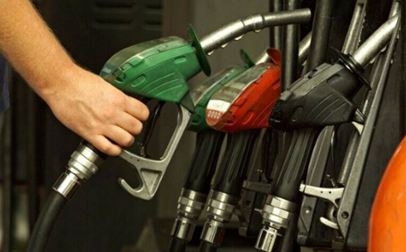ISLAMABAD, JUL 4 /DNA/ – The Chairman of National Business Group Pakistan, the President of the Pakistan Businessmen and Intellectuals Forum, the President of All Karachi Industrial Alliance, the Chairman of the FPCCI Advisory Board, and the President and former provincial minister, Mian Zahid Hussain, said on Friday that the recent increase in oil and gas prices is intensifying hardship for both the public and the business community.
He stated that the new taxes introduced in the budget, along with the energy price hikes, could prove detrimental to Pakistan’s economy and its people.
Mian Zahid Hussain noted that despite relative stability in global crude markets following the recent conflict between Iran and Israel, the substantial increase in domestic fuel prices raises serious concerns.
Speaking to the business community, the veteran business leader said that the government has chosen energy prices as a soft target to raise revenue and has increased the petroleum levy. This, he argued, is unjustified when international crude prices have fallen from $85 per barrel last month to around $65 now.
Providing expensive fuel to the public is a flawed decision, he added, as it will simultaneously fuel inflation, raise production costs, and damage industry and household budgets alike.
Mian Zahid Hussain emphasised that the petroleum levy hike was done under the IMF directives. Instead of curbing gas theft and line losses, the government has shifted the burden onto industrial, commercial, and residential users.
He warned that while this policy might generate immediate revenue, it will slow down long-term economic growth. Across the world, governments are either subsidising energy or maintaining price stability to curb inflation and revive industries. In contrast, Pakistan is witnessing simultaneous increases in the cost of essential goods, production, and transportation, which is worsening economic pressures.
He pointed out that India has not raised oil prices in over a year, and Bangladesh has reduced the prices of petrol, diesel, high-octane, and kerosene multiple times. Mian Zahid Hussain stressed that instead of raising energy prices, urgent and immediate reforms are needed. Circular debt has surpassed Rs 2.7 trillion, electricity theft exceeds 17 per cent, and line losses are far above regional averages.
Without addressing these systemic issues, any increase in prices will offer only temporary relief while also encouraging more theft and non-payment. The government, he urged, must base its decisions on global trends, consumer affordability, and industrial challenges. If energy prices are hiked solely to reduce the fiscal deficit, it will lead to rising poverty, unemployment, and business closures.
He called on the government to adopt transparency, consultation, and realism in policymaking. This, he emphasised, is crucial to build trust and enable real improvements in the energy sector. Without this transparency, expensive energy will continue to be a permanent obstacle to Pakistan’s economic recovery.

















